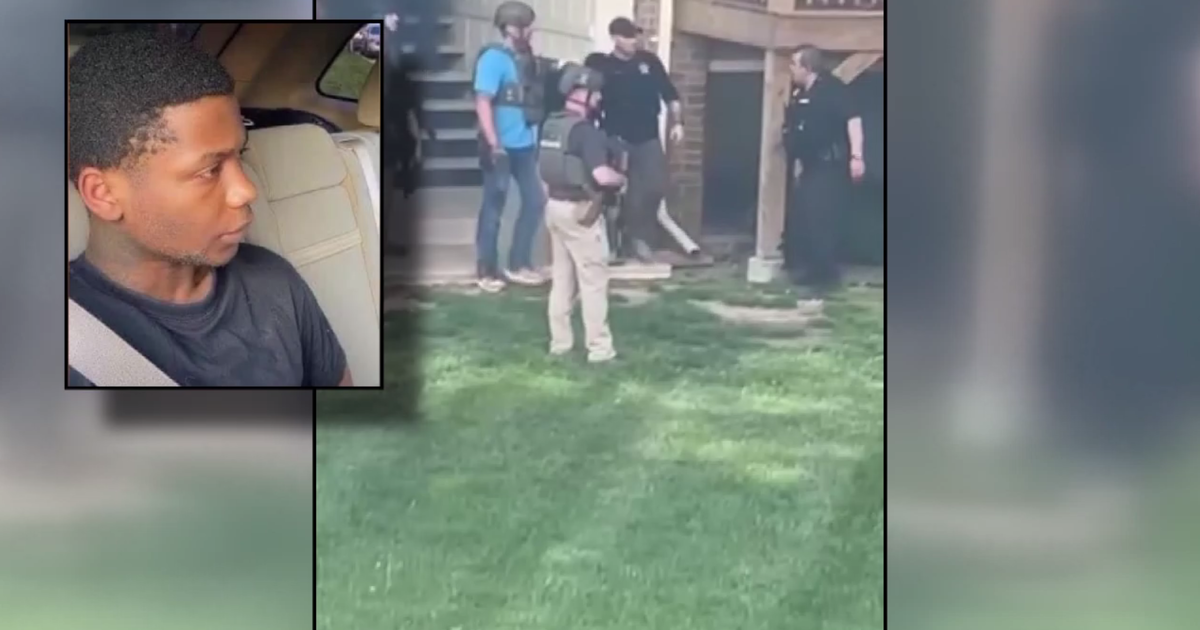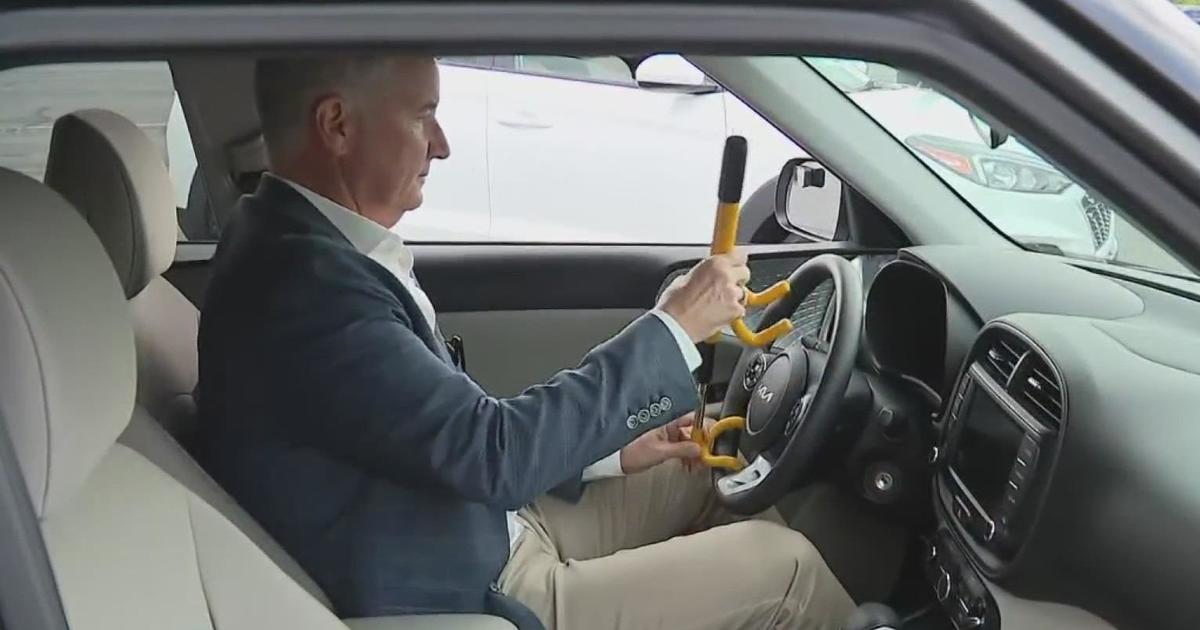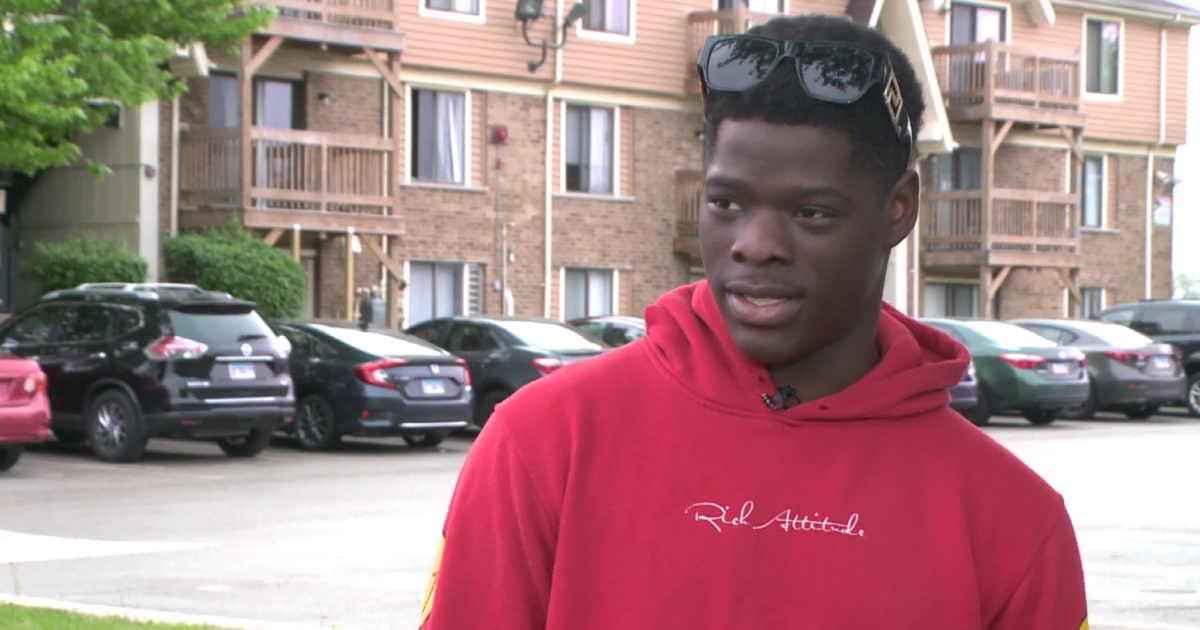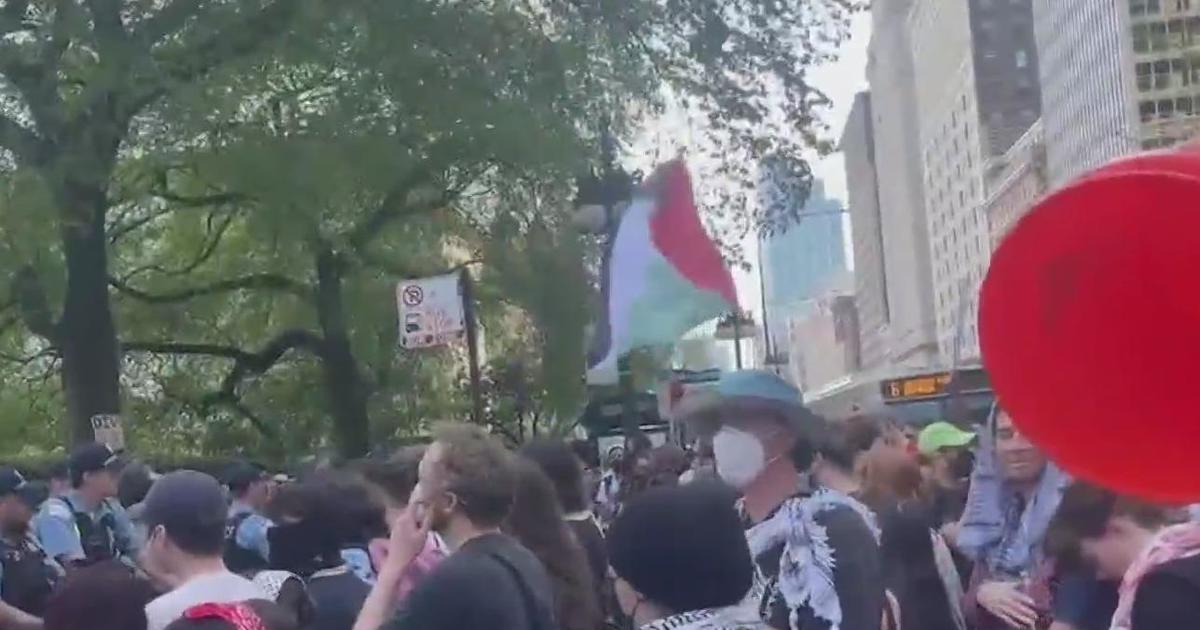Aldermen Take Up Debate On Removing CPD Officers From Chicago Public Schools
CHICAGO (CBS) -- A week after the school board voted down a bid to remove police officers from Chicago Public Schools, aldermen picked up the debate at a marathon joint committee hearing on Thursday, and the chair of the City Council Public Safety Commmittee said he expects aldermen will get to vote on the hot-button issue.
During a nearly five-hour meeting over Zoom, the Public Safety Committee and the Education Committee discussed a 2018 inspector general's report that recommended improvements to the school resource officer program at CPS. At the beginning of the meeting, Public Safety Committee Chairman Ald. Chris Taliaferro (29th) -- who opposes the wholesale removal of police from schools -- said he plans to have the two committees meet again to vote on an ordinance that would require the Chicago Police Department to terminate its $33 million contract to provide school resource officers (SROs) for CPS.
However, no hearings have yet been scheduled on that ordinance, which has been bottled up in the council's Rules Committee, which is typically a legislative limbo where ordinances the mayor opposes are left to languish without a vote. Mayor Lori Lightfoot, who opposes removing police from schools entirely, has said she wants the ordinance to get a public hearing. The mayor has said it the decision on officers in schools should be left up to elected local school councils.
Ald. Roderick Sawyer (6th), one of the co-sponsors of the proposal to remove police from schools, said he's been told by the Lightfoot administration that the ordinance will get a hearing.
"What I don't believe that anybody wants to stifle is the conversation. I think that's far too important. We need to have this conversation on what policing looks like … what educating our children looks like in the 21st century, and we have to include whether police should be directly involved in that," he said. "We need to a have a full at-length discussion of what this looks like."
Sawyer and other members of the council's Progressive Reform Caucus have argued police officers in schools too often mishandle problems and simply send students to jail. They have said the money spent on police officers in schools should instead go to other measures that would better improve safety, such as social workers, counselors, and so-called "restorative justice" initiatives.
"There is not a single study that shows that the presence of police officers in our Chicago Public Schools increases public safety," Ald. Carlos Ramirez Rosa (35th) said during a press conference before Thursday's meeting. "It's really time to move away from police in schools to embrace a real public safety strategy that has an emphasis on trauma-informed practices that are proven to actually be more successful interventions and stopping school violence, whether that be a therapist or a social worker."
Inspector General Joseph Ferguson told aldermen a 2018 report by his office concluded CPD recruitment, selection, placement, training, specification of roles, and evaluation of school resource officers were insufficient to ensure successful execution of SRO duties. He also said the report underscored a high probability students were unnecessarily being placed in the criminal justice system over problems at school.
Ferguson said his office in 2018 recommended a series of reforms to improve the SRO program, but lamented that CPS and CPD did not implement the changes right away, essentially letting an entire school year pass "without the protections and assurances of an appropriate school safety program."
However, Ferguson and CPS Chief Safety Officer Jadine Chou said many of those recommendations were later implemented for the 2019-20 school year.
Chou said, since last summer, CPD has hosted feedback sessions across city, as well as focus groups at individual schools, and received feedback that led to significant improvements in SRO program. All schools' local school councils now have the authority to vote on whether to keep SROs at the beginning of each school year, and to re-vote at any time afterward.
Other reforms that have been implemented include allowing principals to select which officers are assigned to their schools, rather than leaving it up to district commanders; establishing specific roles and responsibilities for SROs; prohibiting officers from any involvement in student discipline; and mandating they go through 40 hours of national SRO training, and 8 hours of supplemental Chicago-specific training on police and protocols and the student code of conduct.
Some aldermen expressed frustration with Chou and Chicago Police Deputy Supt. Barbara West being unable to answer some of their questions, such as how many schools with SROs have active LSCs, how much of the $33 million SRO budget is spent on costs other than police salaries and benefits, or how many officers have been removed from SRO duties over the years.
Opponents of having police in schools also pointed to statistics Ferguson provided that showed Black students are disproportionately more likely to be stopped, arrested, or involved in a use of force incident by police. According to Ferguson, since 2015, 81% of the subjects of use of force reports in or near schools were Black; since 2016, 51.3% of police stops in or near schools involved African Americans; and since 2017, 78.2% of the people arrested at or near schools were Black. African-American students make up only 35.9% of the CPS population.
"Those numbers are not themselves dispositive of anything, but they are demonstrative, and they really do feed the perception, and maybe the reality, that there is racial disparity to the outcomes of how we are policing schools," Ferguson said.
Ald. Jeanette Taylor (20th) said the SRO program's past failures make it obvious officers should be removed from schools.
"It is clear to me that the lack of oversight for years created a climate of fear, abuse, and authority made on children in Chicago schools unsafe for years. This lack of attention caused harm, torture, arrests of thousands of Black and Latinx students, poor students, and students with special needs," she said.
The Progressive Reform Caucus has said they would like to see investment in appropriate disciplinary alternatives that improve school safety, boost student attendance and achievement, and save taxpayer dollars.
"Too often the officers are disciplining or taking the place of the disciplinarian in our respective schools, and that's just not right. They should not be subject to authoritarian practices by Chicago police officers," Sawyer said.
Dr. Rebekah Fenton, a pediatrician, said research shows police officers in schools actually increase anxiety and stress for many students, and can negatively impact their ability to learn and function, and cause "lifelong mental and physical health problems."
"Police officers do not represent safety for everyone, and to presume so says more about what's privileged experience than reality, especially for Black and Brown youth in Chicago," she said. "For their safety, we have to redefine safety. We need to look beyond the false confidence that officers keep our youth safe."
"Police presence not only increases the risk of incarceration for students, it may re-traumatize them from the violence they have witnessed or personally experienced," she added.
Ald. Rossana Rodriguez-Sanchez (33rd), a former teacher in Humboldt Park, said young people don't need police constantly checking on them in school.
"Young people need social workers. They need restorative justice programming. They need counselors, and they need reliable adults, and they need an environment in which they can actually make mistakes without feeling that they're going to be written up, without feeling like they have to leave their community," she said.
Lightfoot and CPS leadership have argued it should be left up to democratically-elected local school councils (LSCs) to decide whether individual schools should keep or remove police officers.
Ald. Nicholas Sposato (38th) suggested there was no need for Thursday's hearing at all, since the school board had already voted to keep officers in schools.
"I just feel it's up to the principal and the LSC. I served on an LSC for six years. To me, they're the ones that know their school best," he said.
Ald. Anthony Napolitano (41st), a former police officer, said parents, teachers, and students all should be able to have a say in whether or not officers are in schools, but he said people who don't have a personal stake in schools shouldn't be weighing in on the debate.
"I don't think I should be sitting here listening to someone that wrote a college thesis of why they don't think police should be in our schools when me, as a parent, I feel comfortable with police officers in schools," he said. "If my school chose that the police shouldn't be there, I would respect that, and I would agree with that."
Several students and CPS employees also called into the meeting to weigh in on both sides of the argument.
Dr. Femi S. Skanes, principal of Morgan Park High School said she can attest to the success of having police officers in some schools, and stressed that they do not use the same strategies as officers on the streets.
"It's unfair and inequitable to make a decision of this magnitude in the third largest school district without leaving the vote to individual schools," she said.
Last Wednesday, the Chicago Board of Education narrowly defeated a bid to remove Chicago police officers from schools. That keeps a $33 million contract with CPD in place until it expires in August, when the board will have to vote on a new SRO agreement.



